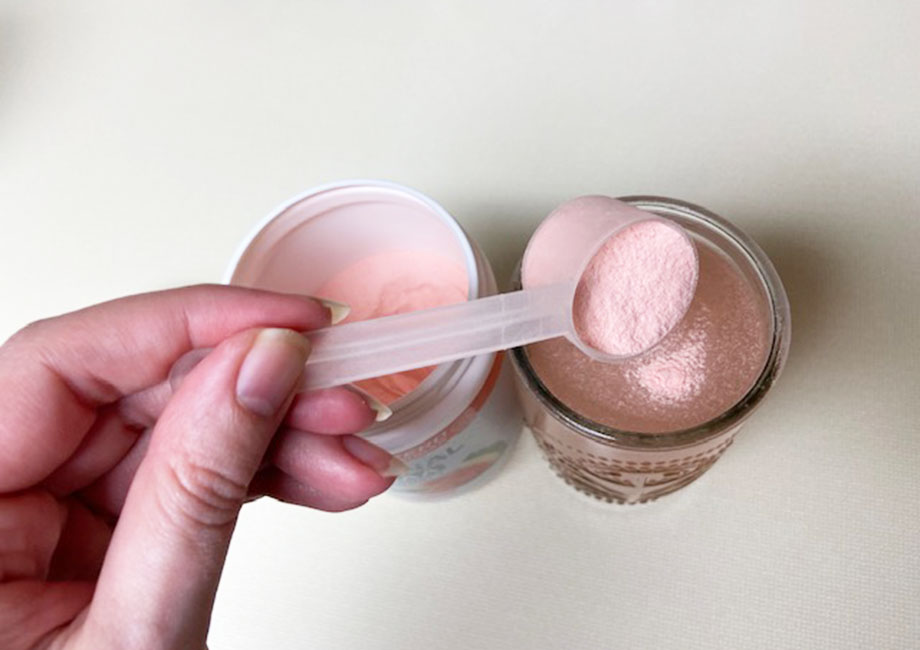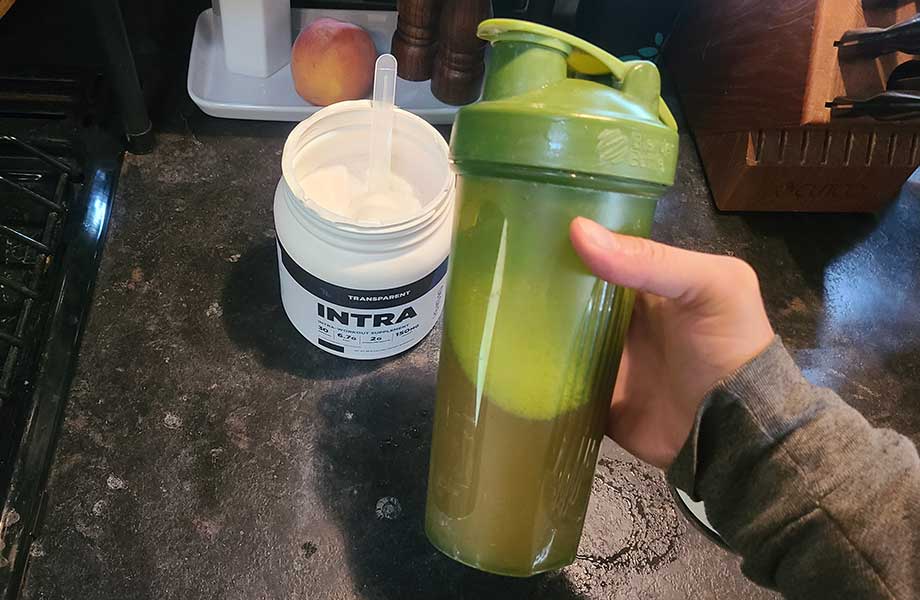We test and review fitness products based on an independent, multi-point methodology. If you use our links to purchase something, we may earn a commission. Read our disclosures.
What are BCAAs? Branched-chain amino acid supplements, or BCAAs, are right up there with creatine in terms of popularity in the fitness community. Both are common ingredients in pre-workout and other dietary supplements that are intended to boost exercise performance and change body composition.
RELATED: Best BCAA
However, what are these compounds exactly? Despite them being quite ubiquitous in the gym, few are aware of the full range of the benefits BCAAs can offer. Additionally, most people are also unaware of how overhyped many of these benefits are. So, let’s take a look at BCAAs, what they are, how they work, and whether they can really revolutionize your fitness goals.
Medical disclaimer: This article is intended for educational and informational purposes only. It is not intended as a substitute for medical advice. For health advice, contact a licensed healthcare provider.
What Are BCAAs?
As most of you have likely heard a million times, amino acids are known as the building blocks of muscle. You can’t build a house without bricks and the body cannot build muscle without amino acids. This is why a high-protein diet is such a huge part of the lives of bodybuilders, athletes, and fitness buffs.
There are nine essential amino acids (EAAs) in the body: histidine, isoleucine, leucine, lysine, methionine, phenylalanine, threonine, tryptophan, and valine. Non-essential amino acids can be created by the human body when needed. However, essential amino acids are so named because the body cannot make them, so they must be obtained from outside sources such as food or supplements.
RELATED: EAA vs BCAA

BCAAs or branched-chain amino acids are the essential amino acids leucine, lysine, and valine and they are called “branched-chain” simply because of the appearance of their chemical structure. So, what makes them so special compared to the other essential amino acids?
How Do BCAAs Work?
Compared to the non-essential and other essential amino acids, BCAAs are some of the most abundant amino acids in your muscle tissue. Thus, according to the Journal of Nutrition1, they are mostly metabolized in the muscle rather than the liver, where the other amino acids are processed.
RELATED: Do BCAAs Give You Energy?
This is why they are thought to improve exercise performance and stimulate muscle protein synthesis. Each amino acid plays its own role in the body, with some being more impactful than others:
- Leucine: The most important of the BCAAs by far, leucine is the trigger for muscle protein synthesis as its presence activates a major metabolic pathway for hypertrophy, according to a study published in the Journal of Nutrition2. Protein supplements like whey protein powder are particularly high in leucine and their effectiveness is what makes them so popular for bodybuilders.
- Isoleucine: Works to shuttle glucose from the blood to the muscles more efficiently, which can help exercise performance by reducing time to fatigue3.
- Valine: Valine works to regulate blood glucose and prevent muscle protein breakdown. Thus, it can help indirectly with muscle growth by promoting net positive muscle mass gain3.
6 Benefits of BCAAs
To be frank, the science on the effects of BCAA supplements is inconsistent, meaning they aren’t going to give most people life-changing results in terms of weight loss, muscle growth, or athletic performance. That said, let’s look at what research says about the potential BCAA benefits.
May Prevent Muscle Protein Breakdown
Putting on muscle mass isn’t just about building new muscle tissue. Muscle growth also relies on reducing muscle loss, especially considering that the rate of muscle damage and catabolism increases after resistance training.

Studies show4 that when blood concentrations of insulin and amino acids are high, it slows the rate of muscle protein breakdown. Indeed, dietitians in clinical settings will often use BCAA supplements to help treat muscle loss from conditions like cancer or sarcopenia5, a condition defined as the age-related decline of muscle mass and strength.
It’s important to note that in these studies, branched-chain amino acids simply prevented muscle loss, but did not necessarily help to build new muscle.
Potential Treatment for Liver Disease
Those with liver diseases like hepatitis or cirrhosis can experience hepatic encephalopathy due to the liver’s inability to clear out toxins that affect the brain. Impairments in motor function, confusion, memory issues, and even coma can occur as a result.
Studies have shown that BCAA supplements can be a better treatment for hepatic encephalopathy than some other dietary supplements, but only in combination with prescription medications, and they don’t prevent the condition from getting worse6.
In those with liver disease without hepatic encephalopathy, BCAA supplements may help reduce fatigue or muscle weakness7. All of this said, if you do have a liver disease, talk to a dietitian and your physician before you take BCAAs on your own.
Can Help With Muscle Growth
Probably the number one reason people take BCAAs is to build muscle. The science does show8 that branched-chain amino acids help to release the enzymes that cause muscle protein synthesis. As mentioned before, this is especially true of leucine.
RELATED: Best Supplements for Muscle Growth
The big asterisk here, however, is that no studies have been able to show that BCAA supplements cause an effect on muscle growth that is superior to the BCAAs you get from food or from whey protein powder (which is notoriously high in leucine9).

As a matter of fact, it has been found that consuming sports nutrition supplements containing intact protein, such as protein powder, may be more effective at building muscle mass than taking BCAAs individually10.
These findings make sense, considering whole food protein sources like whey, dairy products, and lean animal protein contain all of the essential amino acids, and sports nutrition research has shown that consuming all nine essential amino acids stimulates more muscle protein synthesis than consuming BCAAs alone11.
May Support Muscle Recovery
One study12 that had subjects cycle for two continuous hours found that branched-chain amino acid supplementation can support muscle recovery by mitigating the enzymes that lead to muscle damage.
RELATED: Best Muscle Recovery Supplements
Some studies13 have investigated BCAAs’ potential impact on delayed-onset muscle soreness (DOMS), with subjects reporting better muscle recovery following branched-chain amino acid supplementation compared to a placebo.
Interestingly, women experienced better results in terms of muscle soreness compared to men, with female subjects reporting 33% less14 muscle soreness when they took BCAAs along with a carbohydrate source.
May Reduce Fatigue
Some studies have shown that BCAAs taken during physical activity can reduce exercise fatigue by up to 15%15 compared to a placebo. Sounds promising, but the effects of BCAA concentrations on exercise fatigue are inconsistent, with just as many studies showing the compounds don’t have any effect at all16.
Can Improve Blood Sugar Control
As mentioned, one of the mechanisms of isoleucine is to influence insulin release. Since insulin normally releases after eating a meal, elevated blood levels of insulin signal the body that it has been fed. Being in a “fed state” tells the body it doesn’t need to break down muscle tissue for energy.

This function also serves those with insulin resistance, which is a major risk factor for the development of Type 2 diabetes. The effects of BCAAs like leucine and isoleucine cause the muscles to absorb more glucose, which results in lower blood levels of glucose, according to some studies17.
That said, there’s more bad news. These effects are not reliable, as many supporting findings come from studies done on mice and other clinical trials using human subjects found that BCAAs did not affect blood glucose levels18.
Potential Side Effects of BCAAs
Like creatine, branched-chain amino acids are a natural chemical compound. This means the body is used to metabolizing them from food, so they are unlikely to cause side effects in healthy individuals when supplemented as directed.
RELATED: When To Take BCAA and Creatine
That said, BCAAs have the potential to worsen certain conditions like Type 2 diabetes, liver disease, heart disease, and maple syrup urine disease. Also, talk to a registered dietitian or your healthcare provider if you are considering taking BCAAs while taking prescription medication.
Who Should Take BCAAs?
So, based on the science we’ve discussed, it’s safe to say that the effects of branched-chain amino acid supplements aren’t nearly as impactful on their own as many are led to believe. Furthermore, as long as you are eating a balanced diet, especially one that is rich in protein from animal sources such as dairy products and lean meat, you are likely getting all of the amino acids you need without supplements.
RELATED: High-Protein Foods for Muscle-Building
That said, there are certain populations or situations where branched-chain amino acid supplementation can be beneficial.
Vegans and Vegetarians
Studies show that vegan athletes’ protein intake is much lower than vegetarian or omnivorous athletes19. Furthermore, the protein that is consumed from plant-based diets is typically lower in amino acids20. Leucine can be obtained from legumes like lentils, but most other plant-based protein sources are low21 in lysine, isoleucine, and other essential amino acids like tryptophan.
RELATED: Best Vegan Protein Powder

Vegans who are trying to build muscle are also presented with the challenge of many protein supplements containing dairy products or other animal-based ingredients. Thus, getting their BCAAs from BCAA supplements can be more appropriate.
Those With Liver Disease
There are some promising scientific findings in terms of using BCAA supplements in the treatments for liver disease when used under medical supervision. However, the benefits of BCAAs on liver disease are limited and inconsistent, so this direction of treatment should be thoroughly discussed with a healthcare provider to see if it is appropriate.
What Are BCAAs? Final Thoughts
Amino acids are the building blocks of muscle. So, consuming a high-protein diet for wellness and muscle gain is effective because of the actions of essential amino acids, which include branched-chain amino acids. Indeed, studies have shown that high protein intake is not only helpful for muscle gain, but is critical for weight loss as well22.
That said, most people who engage in regular resistance training consume a balanced diet that is rich in enough amino acids that render branched-chain amino acid supplementation unnecessary. The biggest exception to this is vegans who may not receive enough BCAAs through their diet and may benefit from supplements.
RELATED: Are BCAAs Worth It?
At the end of the day, the best thing you can do for your wellness, weight loss, and athletic performance goals is to consume a balanced diet that is rich in lean proteins from both animal (such as seafood and poultry) and complete plant sources (like lentils and soybeans).
If you choose to take BCAA supplements, there aren’t many downsides or risks to doing so, but be aware that the benefits will likely be negligible.
What Are BCAAs? FAQs
Should I take BCAA every day?
BCAA supplements are generally safe to take as directed daily. However, daily intake is not recommended if you are consuming a nutritious, high-protein diet.
What does BCAA do to your body?
BCAAs have several purported benefits to the human body including changes in body composition, better muscle recovery, reduction of tryptophan and serotonin for better sleep, prevention of insulin resistance, and a potential treatment for certain states of liver disease.
What are the pros and cons of BCAAs?
The main pro of BCAAs is they can help supplement a low-protein diet. However, the con is that consuming a balanced diet makes the supplementation of BCAAs unnecessary.
Which is better BCAA or creatine?
Creatine has more science behind its effectiveness for athletic performance and muscle growth. Furthermore, creatine is much harder to obtain from diet than BCAAs, which makes it more practical to supplement.
These statements have not been evaluated by the Food and Drug Administration. This product is not intended to diagnose, treat, cure, or prevent any diseases.
References
- Shimomura Y, Yamamoto Y, Bajotto G, et al. Nutraceutical effects of branched-chain amino acids on skeletal muscle. J Nutr. 2006;136(2):529S-532S. doi:10.1093/jn/136.2.529S
- Kimball SR, Jefferson LS. Signaling pathways and molecular mechanisms through which branched-chain amino acids mediate translational control of protein synthesis. J Nutr. 2006;136(1 Suppl):227S-31S. doi:10.1093/jn/136.1.227S
- Gualano AB, Bozza T, Lopes De Campos P, et al. Branched-chain amino acids supplementation enhances exercise capacity and lipid oxidation during endurance exercise after muscle glycogen depletion. J Sports Med Phys Fitness. 2011;51(1):82-88.
- Tipton KD, Hamilton DL, Gallagher IJ. Assessing the Role of Muscle Protein Breakdown in Response to Nutrition and Exercise in Humans. Sports Med. 2018;48(Suppl 1):53-64. doi:10.1007/s40279-017-0845-5
- Ko CH, Wu SJ, Wang ST, et al. Effects of enriched branched-chain amino acid supplementation on sarcopenia. Aging (Albany NY). 2020;12(14):15091-15103. doi:10.18632/aging.103576
- Metcalfe EL, Avenell A, Fraser A. Branched-chain amino acid supplementation in adults with cirrhosis and porto-systemic encephalopathy: systematic review. Clin Nutr. 2014;33(6):958-965. doi:10.1016/j.clnu.2014.02.011
- Kawaguchi T, Izumi N, Charlton MR, Sata M. Branched-chain amino acids as pharmacological nutrients in chronic liver disease. Hepatology. 2011;54(3):1063-1070. doi:10.1002/hep.24412
- Wolfe RR. Branched-chain amino acids and muscle protein synthesis in humans: myth or reality?. J Int Soc Sports Nutr. 2017;14:30. Published 2017 Aug 22. doi:10.1186/s12970-017-0184-9
- Hamarsland H, Nordengen AL, Nyvik Aas S, et al. Native whey protein with high levels of leucine results in similar post-exercise muscular anabolic responses as regular whey protein: a randomized controlled trial. J Int Soc Sports Nutr. 2017;14:43. Published 2017 Nov 21. doi:10.1186/s12970-017-0202-y
- Hulmi JJ, Lockwood CM, Stout JR. Effect of protein/essential amino acids and resistance training on skeletal muscle hypertrophy: A case for whey protein. Nutr Metab (Lond). 2010;7:51. Published 2010 Jun 17. doi:10.1186/1743-7075-7-51
- Church DD, Hirsch KR, Park S, et al. Essential Amino Acids and Protein Synthesis: Insights into Maximizing the Muscle and Whole-Body Response to Feeding. Nutrients. 2020;12(12):3717. Published 2020 Dec 2. doi:10.3390/nu12123717
- Coombes JS, McNaughton LR. Effects of branched-chain amino acid supplementation on serum creatine kinase and lactate dehydrogenase after prolonged exercise. J Sports Med Phys Fitness. 2000;40(3):240-246.
- Shimomura Y, Inaguma A, Watanabe S, et al. Branched-chain amino acid supplementation before squat exercise and delayed-onset muscle soreness. Int J Sport Nutr Exerc Metab. 2010;20(3):236-244. doi:10.1123/ijsnem.20.3.236
- Leahy DT, Pintauro SJ. Branched-chain amino Acid plus glucose supplement reduces exercise-induced delayed onset muscle soreness in college-age females. ISRN Nutr. 2013;2013:921972. Published 2013 Mar 17. doi:10.5402/2013/921972
- Portier H, Chatard JC, Filaire E, Jaunet-Devienne MF, Robert A, Guezennec CY. Effects of branched-chain amino acids supplementation on physiological and psychological performance during an offshore sailing race. Eur J Appl Physiol. 2008;104(5):787-794. doi:10.1007/s00421-008-0832-5
- Blomstrand E, Hassmén P, Ek S, Ekblom B, Newsholme EA. Influence of ingesting a solution of branched-chain amino acids on perceived exertion during exercise. Acta Physiol Scand. 1997;159(1):41-49. doi:10.1046/j.1365-201X.1997.547327000.x
- Yang J, Chi Y, Burkhardt BR, Guan Y, Wolf BA. Leucine metabolism in regulation of insulin secretion from pancreatic beta cells. Nutr Rev. 2010;68(5):270-279. doi:10.1111/j.1753-4887.2010.00282.x
- Takeshita Y, Takamura T, Kita Y, et al. Beneficial effect of branched-chain amino acid supplementation on glycemic control in chronic hepatitis C patients with insulin resistance: implications for type 2 diabetes. Metabolism. 2012;61(10):1388-1394. doi:10.1016/j.metabol.2012.03.011
- Venderley AM, Campbell WW. Vegetarian diets : nutritional considerations for athletes. Sports Med. 2006;36(4):293-305. doi:10.2165/00007256-200636040-00002
- Phillips SM. Protein requirements and supplementation in strength sports. Nutrition. 2004;20(7-8):689-695. doi:10.1016/j.nut.2004.04.009
- Rogerson D. Vegan diets: practical advice for athletes and exercisers. J Int Soc Sports Nutr. 2017;14:36. Published 2017 Sep 13. doi:10.1186/s12970-017-0192-9
- Moon J, Koh G. Clinical Evidence and Mechanisms of High-Protein Diet-Induced Weight Loss. J Obes Metab Syndr. 2020;29(3):166-173. doi:10.7570/jomes20028
Further reading

In this collection of ProForm Treadmill reviews, we’ll deep dive into the specs and compare each model. Read more

Can JRNY stand up to competitors like iFIT and Peloton? Find out in our JRNY app review. Read more

A CPT describes how to do the kettlebell bench press with the correct form, common mistakes to avoid, and the benefits of performing this resistance exercise. Read more

We pulled together all the best Labor Day sales on fitness equipment as well as tips for finding deals. Save money on barbells, dumbbells, treadmills, ellipticals, supplements, and more. Read more

